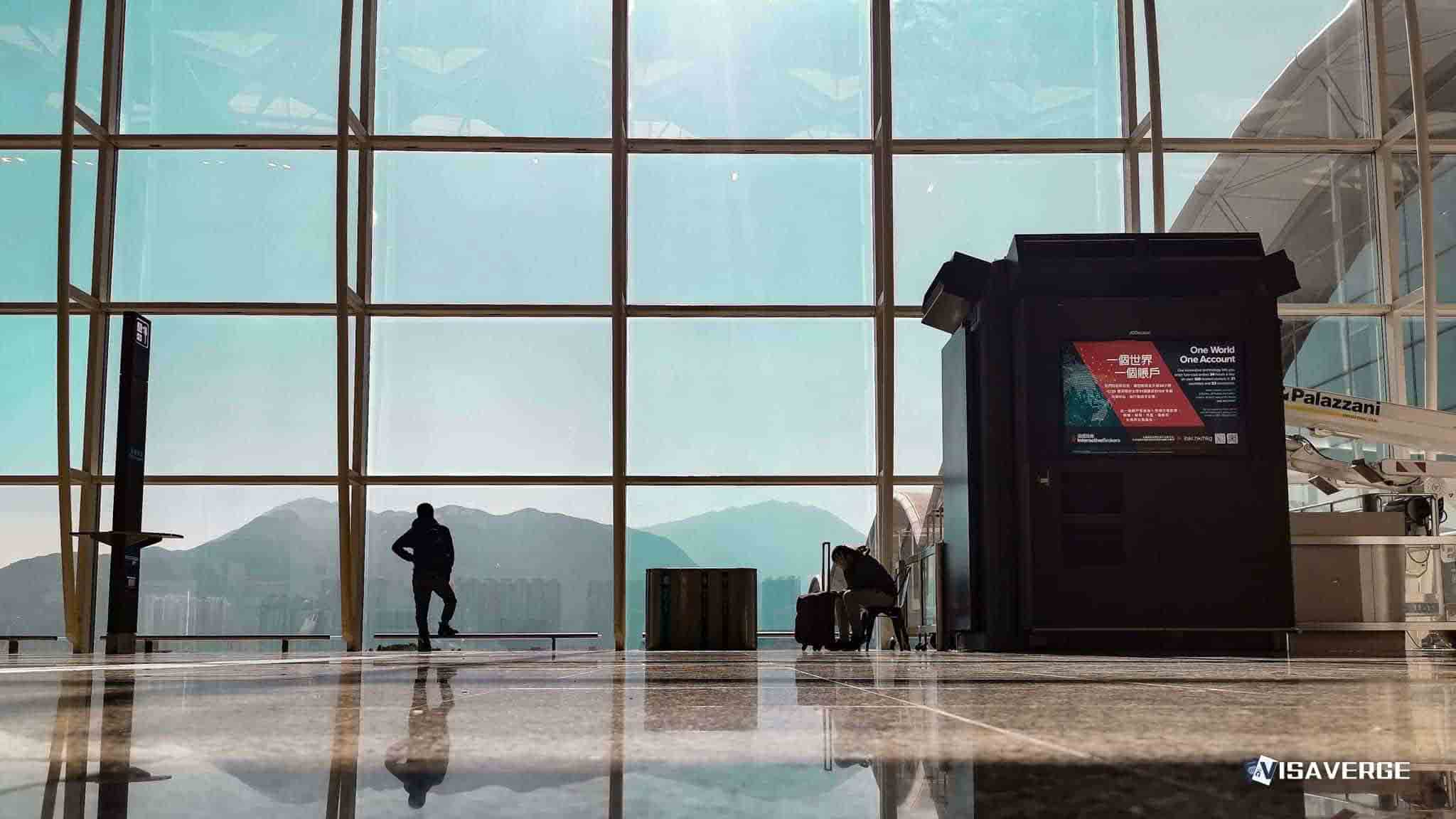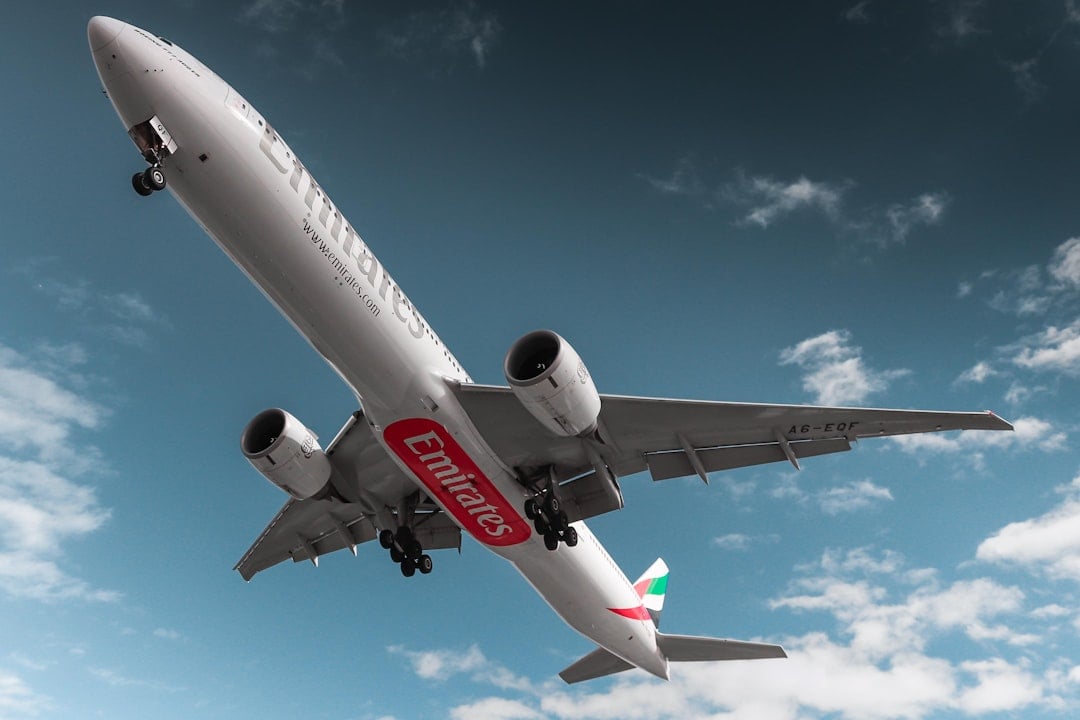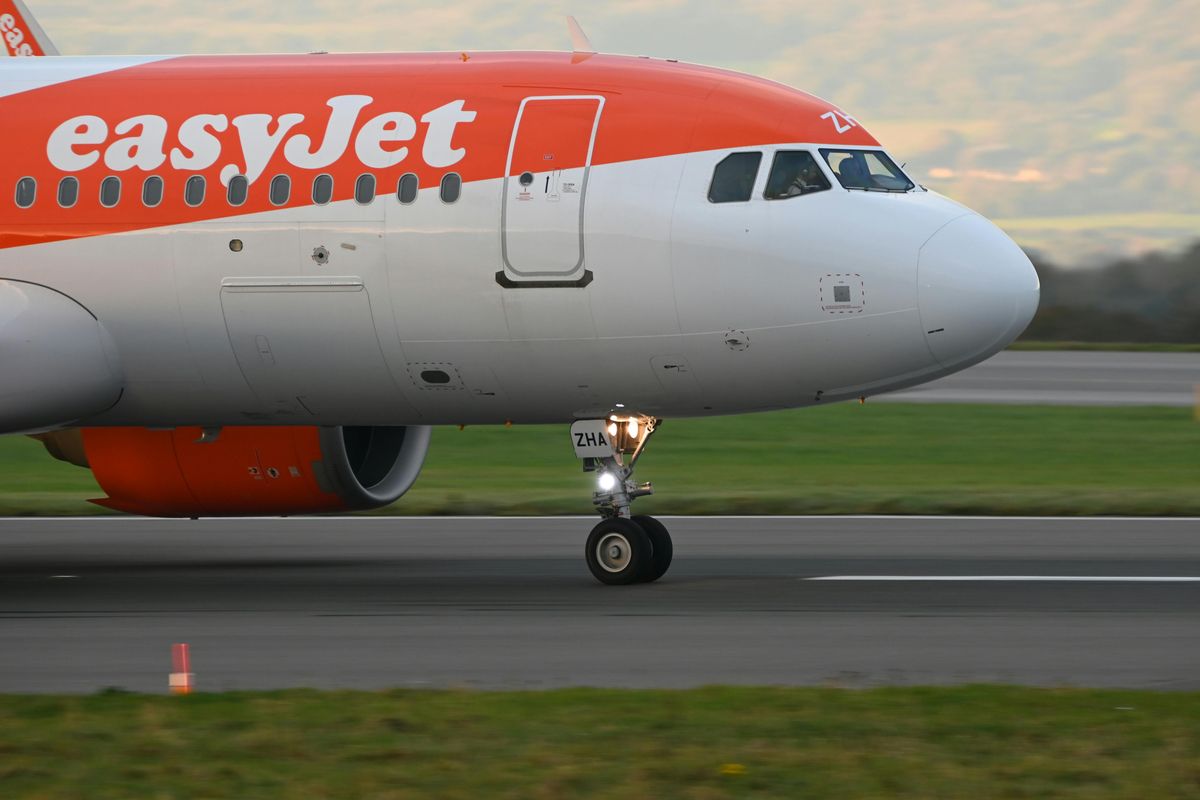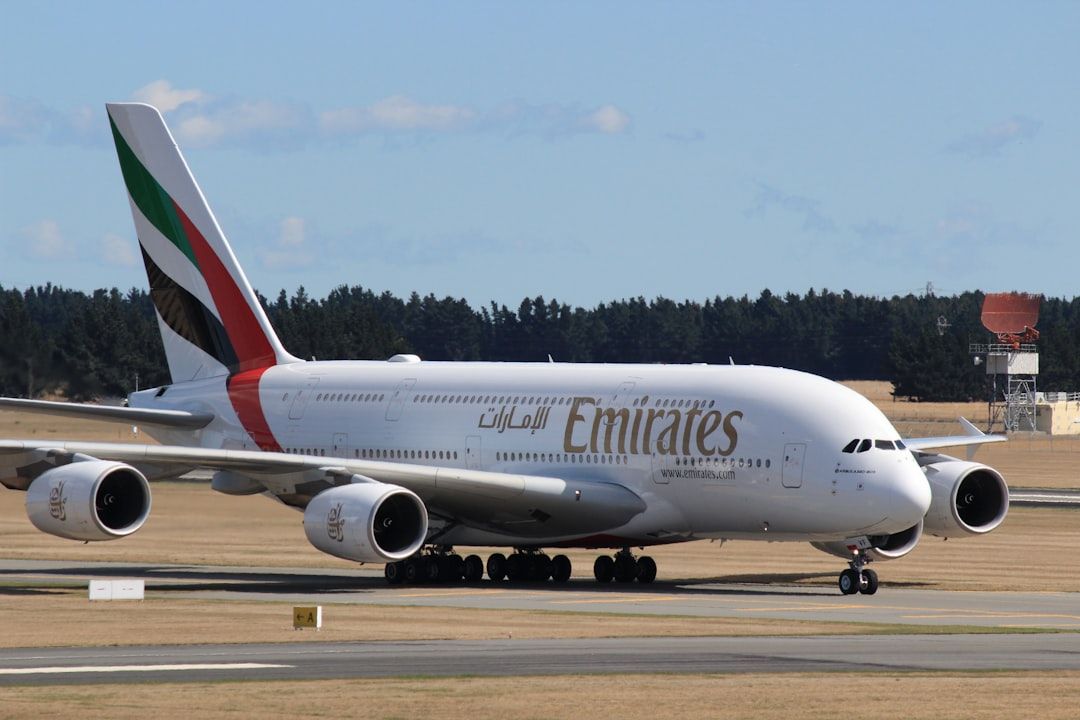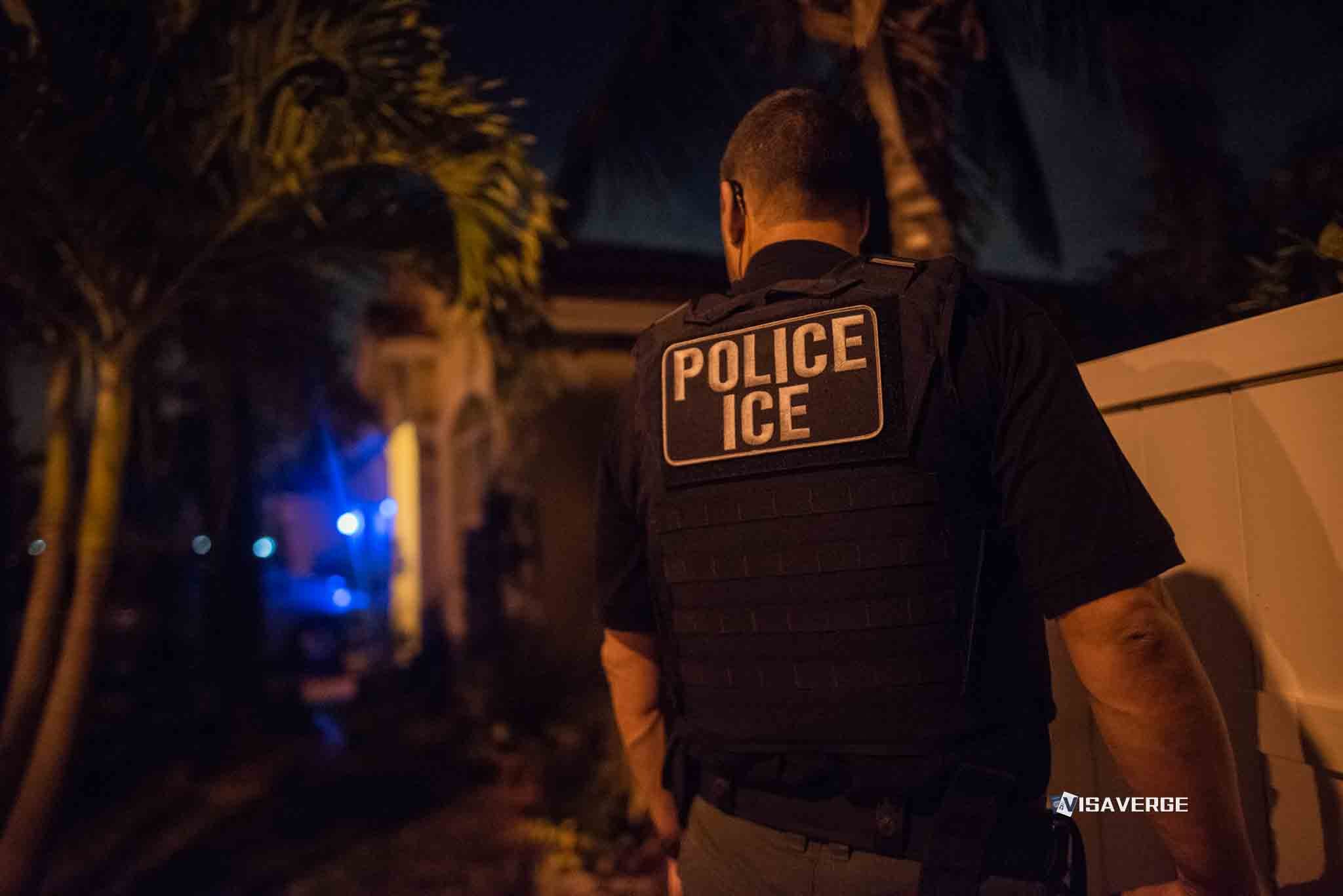Key Takeaways
• Condor flight DE1513 missed Munich Airport curfew by 10 seconds on June 2, 2025, causing diversion to Hahn Airport.
• Passengers may claim compensation under EU Regulation 261/2004 for delays and diversions on EU flights.
• Munich enforces strict midnight curfew with extensions to 12:30 AM to reduce noise and protect communities.
On June 2, 2025, Condor flight DE1513 from Palma de Mallorca to Munich Airport was denied landing after missing the airport’s curfew by just 10 seconds. This event, which forced the plane to divert to another airport, has drawn attention to the strict rules at European airports and the real-life impact these regulations have on travelers. The incident also raises questions about how airports balance rules with the needs of passengers and airlines.
Let’s break down what happened, why it matters, and what it means for travelers, airlines, and airport authorities.
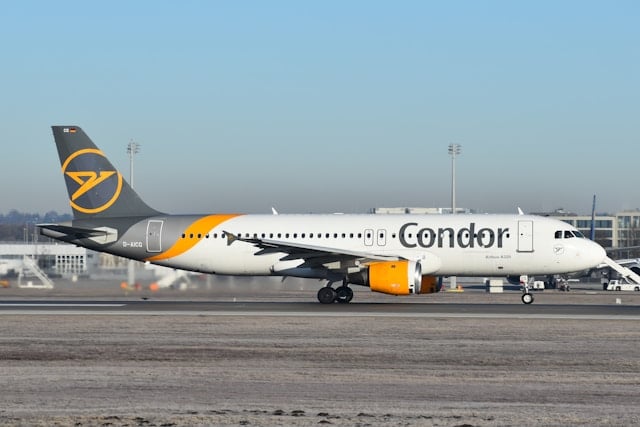
Condor Flight DE1513: What Happened?
Condor flight DE1513 was scheduled to leave Palma de Mallorca, a popular holiday destination, at 8:35 PM and arrive at Munich Airport at 10:40 PM on June 2, 2025. However, the flight was delayed because the plane arrived late from a previous trip. The Airbus A321, with registration D-ATCA, finally took off from Mallorca at 10:52 PM—over two hours late.
Munich Airport has a strict rule: no landings after midnight, except in special cases where the curfew can be extended to 12:30 AM. Condor had received permission for this extension, giving them a little more time to land. But with the late departure, the pilots had to complete the 756-mile journey as quickly as possible to meet the new deadline.
Despite their efforts, the plane missed the curfew by just 10 seconds. The aircraft was already on final approach, landing gear down, and preparing to touch down on runway 8R at Munich Airport. At 12:30 AM, as the plane reached its lowest point before landing, air traffic control denied permission to land.
Immediate Aftermath: Diversion to Hahn Airport
After being denied landing at Munich, the pilots had to quickly change course. The plane was diverted to Hahn Airport, which is about 233 miles away from Munich and closer to Frankfurt. The flight finally landed at Hahn at 1:13 AM.
The captain made an announcement to passengers, apologizing and explaining that the plane was denied landing because it missed the curfew by just 10 seconds. This left many passengers frustrated and confused, as they now faced a long journey to reach their original destination.
Why Are Airport Curfews So Strict?
Munich Airport’s curfew is not unique. Many airports in Europe have strict rules about when planes can land or take off, especially at night. These rules are mainly in place to:
- Reduce noise for people living near the airport
- Limit environmental impact, such as air pollution
- Ensure safety and smooth airport operations
Munich Airport’s midnight curfew, with possible extensions to 12:30 AM, is part of a larger effort to balance airport growth with the needs of local communities and the environment. In fact, the airport has been discussing expansion plans, like building a third runway, for years. These plans often face pushback from residents and environmental groups who worry about more noise and pollution.
Some people argue that forcing a plane to divert after it’s already on final approach can actually create more noise and disruption than simply allowing it to land. As one observer pointed out, “Wouldn’t diverting be louder than just landing at this point? I believe this is the case, which makes the bureaucracy the hard r word (actually louder for nearby residents and a nightmare for the passengers).”
Passenger Impact: What Happens When a Flight Is Diverted?
For the passengers on Condor flight DE1513, the diversion meant more than just a late arrival. They had to land at an airport far from their intended destination, figure out how to get to Munich, and deal with the stress and confusion of unexpected travel changes.
Under European Union rules, specifically EU Regulation 261/2004 (EU261), passengers may be entitled to compensation when their flight is delayed, canceled, or they are denied boarding. This law applies to flights within, to, or from the European Union. In this case, passengers on DE1513 could claim compensation for the delay and inconvenience.
Key points about EU261 compensation:
– Applies to flights departing from or arriving in the EU on an EU airline
– Passengers may receive compensation for delays of more than three hours, cancellations, or denied boarding
– The amount depends on the distance of the flight and the length of the delay
For more information about passenger rights and compensation, travelers can visit the European Commission’s official page on air passenger rights.
Condor’s Response and Ongoing Operations
Despite this incident, Condor continues to operate flights between Munich and Palma de Mallorca. As of June 5, 2025, flights like DE1130 (CFG1130) are running as scheduled, and there have been no widespread disruptions to Condor’s schedule. The airline also operates other routes, such as DE24 (CFG24) from Munich to Hurghada.
Condor, a German leisure airline, has faced several challenges recently. For example, the airline no longer flies over Russian or Ukrainian airspace due to ongoing conflicts in those regions. This change affects flight planning and can lead to longer routes and higher costs.
Another recent challenge for Condor was the insolvency of FTI, a major tour operator, which filed for bankruptcy on June 3, 2024. This caused many trips to be canceled and affected Condor’s business, as many of its passengers book flights as part of package holidays.
Industry Context: Why Are Delays and Disruptions Happening?
The aviation industry has been under pressure for several years. Airlines and airports have faced staff shortages, increased demand, and new rules related to health and safety. According to Lufthansa Group’s 2022 annual report, “operational stability caused us great concern in 2022,” and many employees were working “at the limits of their capacity.”
These challenges make it harder for airlines to keep flights on time. Delays can quickly add up, especially when one late flight causes a chain reaction of delays for other flights.
Airport Curfews: Balancing Rules and Real Life
Strict airport curfews are meant to protect local communities from noise and pollution, but they can also create problems for travelers and airlines. When a flight is delayed for reasons outside the airline’s control, such as weather or air traffic, it can be very difficult to make up lost time.
In the case of Condor flight DE1513, the pilots did everything they could to arrive before the curfew. Missing the deadline by just 10 seconds seems harsh, especially since the plane was already about to land. However, airport authorities must follow the rules to avoid setting a precedent that could lead to more exceptions and, over time, more noise and disruption for local residents.
Some experts argue that there should be more flexibility in cases where a plane is already on final approach and the delay is very small. Others believe that strict enforcement is necessary to protect the community and ensure fairness for all airlines.
Safety Considerations: Why Rules Matter
While the DE1513 incident was not a safety issue, it’s important to remember that strict rules and careful management are essential for safe airport operations. Other airports, like Zurich, have experienced serious accidents during approach and take-off phases in the past. These incidents highlight the need for clear rules and quick decision-making by air traffic controllers and pilots.
What Should Passengers Do If Their Flight Is Diverted?
If you find yourself in a situation like the passengers on Condor flight DE1513, here are some steps to take:
- Stay calm and listen for announcements from the crew. They will provide information about what’s happening and what to do next.
- Keep your boarding pass and any travel documents. You may need these to claim compensation or for onward travel.
- Ask the airline for help with onward travel. Airlines are usually required to help you reach your final destination, even if it means arranging a bus, train, or another flight.
- Check if you are eligible for compensation under EU261. If your flight is delayed by more than three hours or you are diverted, you may be entitled to compensation.
- Contact your travel insurance provider. They may cover extra costs like hotels or meals.
How Does This Affect Airlines and Airports?
For airlines like Condor, incidents like this can damage their reputation and increase costs. They may have to pay for extra fuel, landing fees at the diversion airport, and compensation to passengers. Airlines also have to manage the logistics of getting passengers to their final destination, which can be complicated and expensive.
For airports, strict curfews help maintain good relationships with local communities and reduce complaints about noise and pollution. However, they also risk upsetting travelers and airlines when rules are enforced in a way that seems inflexible or unfair.
Looking Ahead: Will Rules Change?
The debate over airport curfews is likely to continue. Some people believe that technology and better planning can help reduce delays and make it easier for flights to arrive on time. Others argue that more flexibility is needed for rare cases where a plane is just a few seconds late.
Airports and airlines will need to work together to find solutions that protect local communities while also meeting the needs of travelers. This may include better communication, improved scheduling, and new technology to help manage flights more efficiently.
Key Takeaways for Travelers
- Airport curfews are strict and can lead to diversions, even for small delays.
- Passengers may be entitled to compensation under EU261 if their flight is delayed or diverted.
- It’s important to keep travel documents and ask the airline for help if your flight is disrupted.
- Check official resources, like the European Commission’s air passenger rights page, for up-to-date information on your rights.
Conclusion: The Human Side of Aviation Rules
The story of Condor flight DE1513 shows how strict rules, like airport curfews, can have a big impact on real people. While these rules are meant to protect communities and the environment, they can also create stress and inconvenience for travelers. Airlines and airports must balance these competing needs, and passengers should know their rights and options if things go wrong.
As reported by VisaVerge.com, incidents like this highlight the importance of clear communication, fair rules, and support for travelers when unexpected problems arise. By staying informed and prepared, passengers can better handle disruptions and make the best of a difficult situation.
For more information about Condor flight DE1513, Munich Airport, and travel from Mallorca, travelers should check official airline and airport websites, as well as trusted sources like VisaVerge.com, for the latest updates and advice.
Learn Today
Curfew → A strict time limit when airports restrict landings or takeoffs, usually to reduce noise at night.
Diversion → When a flight must land at an alternate airport due to restrictions or emergencies.
EU Regulation 261/2004 (EU261) → European law protecting air passengers’ rights for delays, cancellations, and denied boarding.
Final Approach → The last phase of a flight when the aircraft prepares to land on the runway.
Air Traffic Control → Officials who direct planes’ movements to ensure safe and orderly flights and landings.
This Article in a Nutshell
Condor’s flight DE1513 was denied landing at Munich for missing curfew by 10 seconds, forcing a costly diversion. This highlights strict European airport rules, passenger rights under EU261, and the delicate balance between regulations, noise control, and operational challenges impacting travelers and airlines alike.
— By VisaVerge.com


